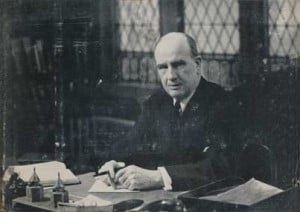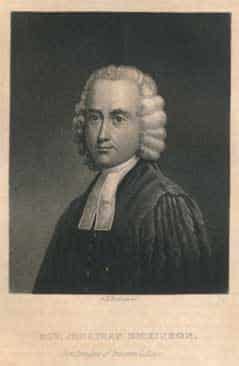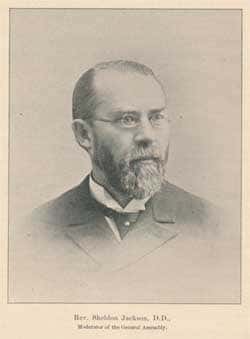STUDIES IN THE WESTMINSTER SHORTER CATECHISM
by Rev. Leonard T. Van Horn
Q 38. — What benefits do believers receive from Christ at the resurrection?
A. — At the resurrection, believers, being raised up in glory, shall be openly acknowledged, and acquitted in the day of judgment, and made perfectly blessed in the full enjoying of God to all eternity.
Scripture References: I Cor. 15:43, 44; Matt. 25:33, 34; Matt. 10:32; Psa. 15:1; I Thess. 4:14; I Cor. 2:9.
Questions:
1. What are the three benefits of the believers as contained in this question?
(1) The believers shall be raised up in glory.
(2) The believers shall be acknowledged and acquitted at the day of judgment.
(3) The believers shall be made perfectly blessed in the full enjoyment of God to all eternity.
2. What is the glory referred to in this question and what will be the result of it?
The glory referred to in this question is the glory of the resurrection, when the body will be restored and no longer subject to death and dissolution and “be fashioned like unto Christ’s glorious body.” (Phil. 3 :21).
3. What is the meaning of the believers being acknowledged and acquitted?
The believers will hear the Savior’s “Come, ye blessed of my Father, inherit the kingdom prepared for you from the foundation of the world.” (Matt. 25:34). Their faith shall be vindicated; they shall be publicly acknowledged as the redeemed children of God, (I Cor. 4:5), and the declaration will be made that all their sins are pardoned.
4. What is the third blessing that will come to the believers?
The third is the greatest blessing of all, the full enjoyment of God. The believers will ever be with the Lord and will receive the inheritance prepared for them. There the believers will behold their Savior and Lord, Jesus Christ, and will finally be able to trace the ways in which the Lord has led and saved them. (I Pet. 1:6).
5. What will be the lot of the unbelievers at the resurrection?
Their bodies shall be released from the grave and they shall see Christ as their final judge. They shall stand before His judgment Throne and shall have their sins read out of the books and will be eternally cast into hell. (II Thess. 1:7-8; Rev. 20:11,12).
GOOD STEWARDS OF THE GRACE OF GOD
“As every man hath received the gift, even so minister the same one to another, as good stewards of the manifold grace of God.” (I Pet. 4: 10). Blessing after blessing has been mentioned in the past few questions; but with blessings come responsibilities. It is a good thing to be reminded of the benefits that come to the believer both in this life and at death and at the resurrection. But it is an important thing that the believer recognize that with these benefits there is a call from the Lord to be good stewards of his grace.
Archbishop Leighton said, “Thinkest thou that thy wealth, or power, or wit, is thine, to do with as thou wilt, to engross to thyself either to retain as useless or to use, to hoard and wrap up, or to lavish out; according as thy humour leads thee? No! All is given as to a steward, wisely and faithfully to lay up and layout, not only the outward estate and common gifts of mind, but even saving grace, which seems most appropriated for thy private good, yet is not wholly for that. Even thy graces are for the good of thy brethren.”
If believers are to live to the glory of God, (going back to the first question), then they must be good stewards of the grace of God. The benefits given now and those to be given to the believers at the resurrection should be daily motivators toward wanting to thank and praise God for them in the way He desires praise—living to his glory. It should be noted by the believer that benefits are given for the purpose of being exercised; that the design of these exercises is not only for the advantage of the believer but is also for that of the body of Christ at large. In addition, when a believer is exercising a gift, a benefit, he ought to consider himself as a steward who must be faithful, being a good manager of the manifold grace of God.
In I Tim. 6:17-18 we have the same teaching: “Charge them that are rich in this world, that they be not highminded, nor trust in uncertain riches, but in the living God, who giveth us richly all things to enjoy; That they do good, that they be rich in good works, ready to distribute, willing to communicate.”
To be a good steward of the manifold grace of God is indeed a way to “redeem the time” in these evil days. May God help us to do so, all to His glory.
Published by: THE SHIELD and SWORD, INC.
Vol. 3 No. 33 (February, 1964)
Rev. Leonard T. Van Horn, Editor



